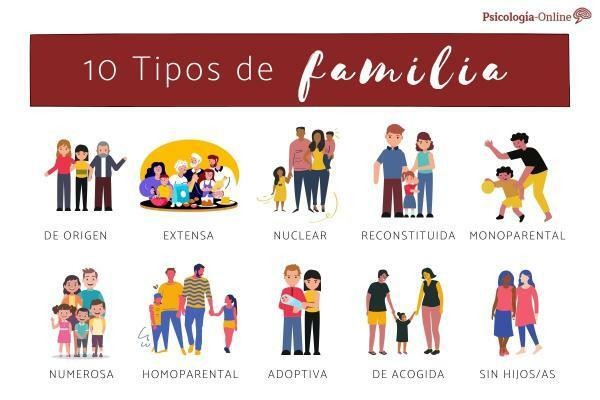
Human emotions are very complex and are present throughout our lives. One of them is joy, a primary emotion that has to do with enjoyment, satisfaction and happiness for achieving one of our desires. Therefore, the human being seeks to achieve joy in all his actions, but few stop to reflect on it.
For many, joy is a momentary feeling that rarely leaves lasting marks on your mood, but science says otherwise. Furthermore, it is a central human experience. For this reason, in this Psychology-online article, we will explain in detail what is joy in psychology, what benefits it has and how it differs from happiness.
Index
- What is joy according to psychology
- benefits of joy
- What is the difference between joy and happiness
What is joy according to psychology.
According to psychology, joy can be defined as a pleasant sensation experienced at a certain time. It can also be described as the state of mind associated with happiness, pleasure, and well-being. Etymologically derived from the Latin
On positive psychology, joy is one of the five fundamental pillars of subjective well-being. Therefore, it is associated with enthusiasm and excitement, which is why it is connected with a strong sense of well-being and progress.
Together with that, taking as reference the concept of the APA Dictionary of Psychology[1], we can say that joy according to psychology is a feeling of extreme delight and exaltation that comes from a feeling of well-being. Also, the feeling of joy can be of two types:
- active joy: we want to share our pleasure with others.
- passive joy: It is a more personal and intimate emotion that we enjoy individually.
What causes joy?
Joy can be caused by people, objects or situations. For example, children experience joy when they see their parents and their friends, but also when they get a new toy or go to their favorite park for an afternoon.
In short, for joy to exist there must be an external stimulus or a pleasant memory that activates the neurotransmitters that release certain hormones related to significant emotions.
Benefits of joy.
When experiencing joy, the body releases different hormones, such as dopamine and serotonin, which are active neurotransmitters in the brain. Therefore, the benefits of joy in psychology are many. We will describe them below:
- Increases confidence and raises self-esteem levels, since we have a better opinion of ourselves.
- Boosts physical energy and lowers stress levels.
- Fight anxiety and depression: When a person is in a state of depression, they have low levels of oxytocin and serotonin, which makes it difficult for them to experience joy.
- Allows clearer decisions and improve performance in activities.
- Reduce negative thoughts and allows you to give a positive approach to different situations.
- Regulates social interaction and encourages empathy.
- improve sleep and helps you rest better at night.
- Modify the body's immune response: helps control some hormones, such as cortisol, which are capable of altering health.
- help to relax: When we feel happy, oxytocin is released, a hormone associated with calm and relaxation.
In short, the benefits of joy are not only mental, but also physical. In fact, a balanced mood is especially important for people recovering from cancer, traumatic brain injury, or high cholesterol. What's more, a person with joy spreads that state of good humor and happiness to others.

What is the difference between joy and happiness.
Do you want to know if there is a difference between happiness and joy? Although happiness and joy are often confused as synonyms or equal concepts, the truth is that they have a great difference between them.
To begin with, happiness is a state that accompanies a certain process from beginning to end, while joy is associated with a particular moment. Therefore, experiencing joy expresses joy and is usually a passing emotion. Nevertheless, happiness is usually more lasting and there is not so much demonstration of exaltation.
For example, when we are given a present, we feel joy, but when we reach an academic or professional achievement, we experience happiness, a feeling that lasts over time. In addition, joy does not always come from oneself, since it can derive from external factors.
However, happiness has to do with the pleasure of the inner “I”. Therefore, it is something intrinsic and very personal that depends on the scale of values of each person. Definitely, joy is defined as a momentary emotion, but happiness is lasting and to achieve it it is necessary to experience joy. If you are interested in knowing more, in this article, we tell you how to achieve personal happiness.
This article is merely informative, in Psychology-Online we do not have the power to make a diagnosis or recommend a treatment. We invite you to go to a psychologist to treat your particular case.
If you want to read more articles similar to What is joy in psychology, we recommend that you enter our category of Emotions.
References
- American Psychological Association official website: https://dictionary.apa.org/joy
Bibliography
- Allport, G. (1961). Personality psychology. Buenos Aires, Argentina: Paidos.
- Chris M. Meadows (2012). A psychological perspective on joy and emotional fulfillment. ISBN 9780415841238
- King, PE and Defoy, F. (2020). Joy as a virtue: the means and ends of joy. Journal of Psychology and Theology. https://doi.org/10.1177/0091647120907994


